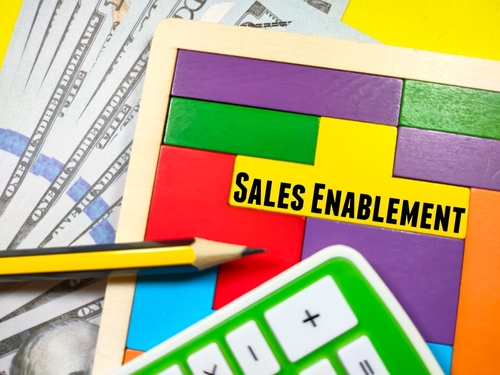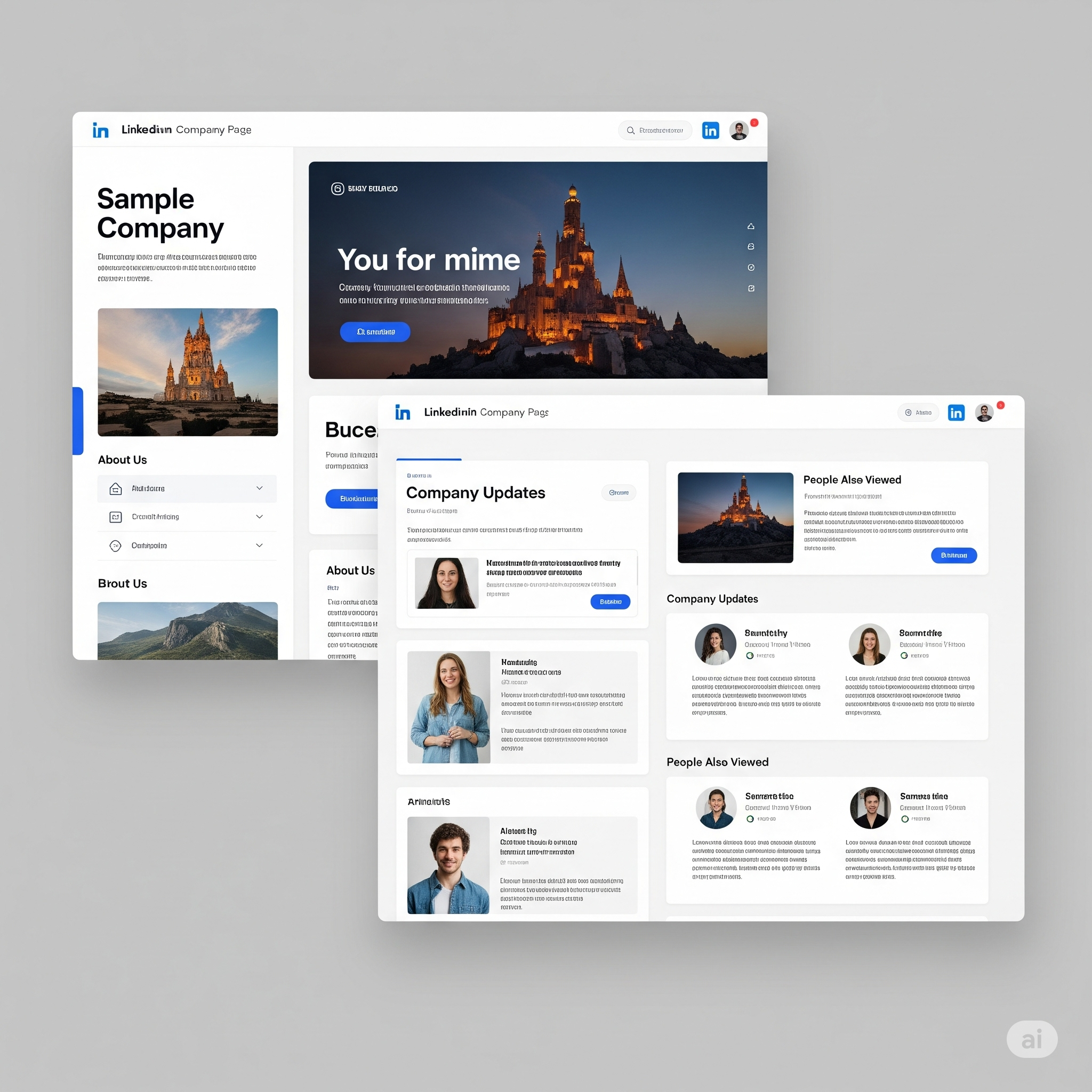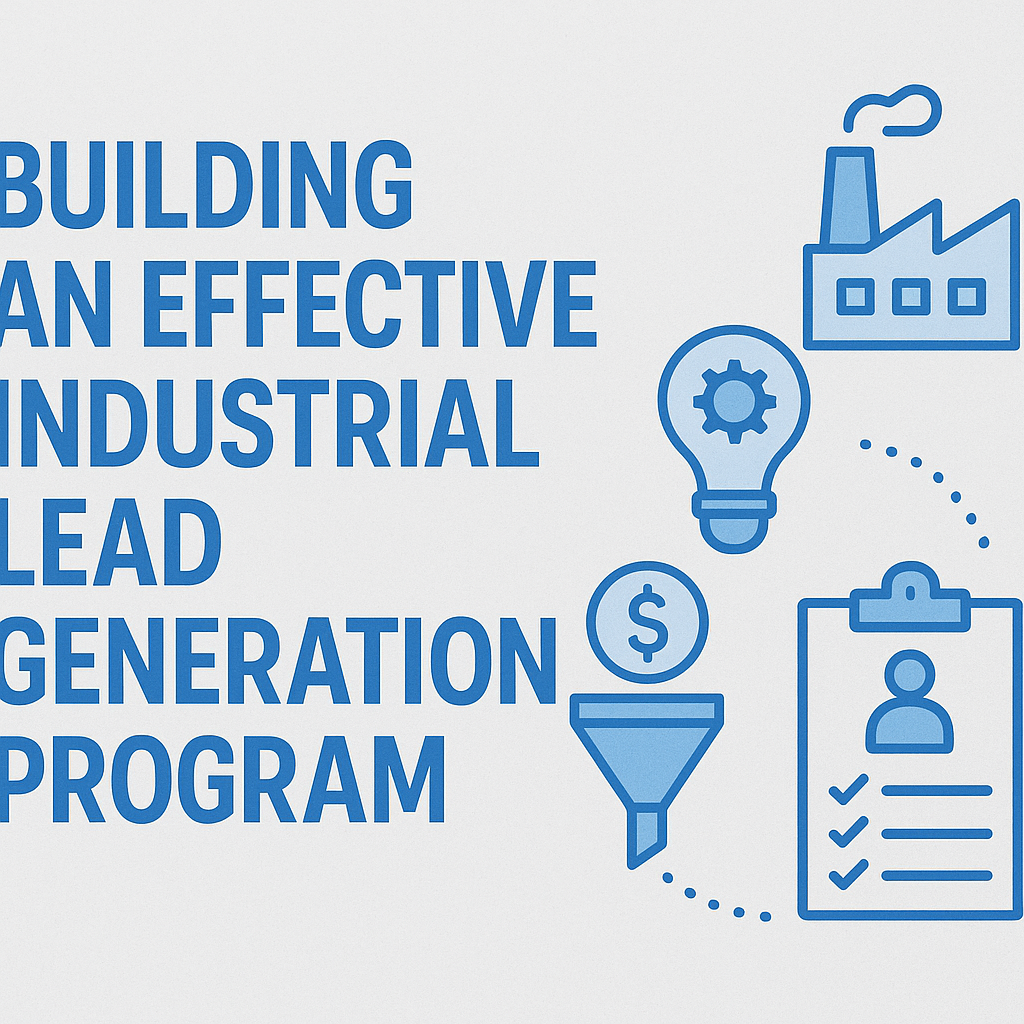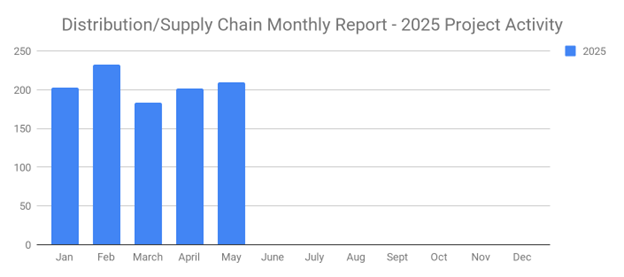
Sales enablement is reshaping the way B2B companies engage with prospects and close deals. By equipping sales teams with the resources they need, sales enablement enhances productivity, builds stronger relationships, and drives growth. It’s no wonder companies that implement sales enablement strategies report significantly higher success rates than their counterparts. Sales enablement has become a hot topic in the B2B industry. Research shows that B2B companies that implement sales enablement successfully close 49% of their deals, compared to just 42% for those that don't implement sales enablement.
Regardless of the industry in which your B2B company operates, sales enablement can help it succeed. It's a universally beneficial process that fuels productivity, growth and, ultimately, sales. For a better understanding of sales enablement and why it's important, keep reading. If you’re looking to elevate your B2B sales operations, understanding and implementing sales enablement is essential. This comprehensive guide explores its importance, benefits, and best practices.
An Introduction to Sales Enablement
What is sales enablement exactly? It's the process of providing sales reps with everything they need to engage prospects and close deals. It's called "sales enablement" because it centers around enabling sales reps.
It's not uncommon for B2B companies to have large teams of sales reps. Some of them have dozens of sales reps, whereas others have hundreds of sales reps. The overall success of a B2B company will depend heavily on its sales reps' ability to engage prospects with a compelling offer. Sales enablement is all about providing sales reps with everything they need to achieve this shared goal. When sales reps have the right tools, resources and knowledge, they can close more deals; it's just that simple.
At its core, sales enablement involves providing your sales team with the resources, tools, and strategies they need to engage effectively with prospects and close deals. Whether it’s advanced CRM systems, lead generation insights, or personalized sales training, sales enablement ensures every team member is fully equipped to deliver results.
For example, in industries like industrial lead generation or manufacturing business development, sales reps may need access to detailed project reports and prospect data. Sales enablement bridges these gaps by streamlining processes and delivering actionable insights to close deals faster.
Why Sales Enablement Is Important
As previously mentioned, sales enablement directly influences the close rate of B2B companies. B2B companies that implement sales enablement typically close more deals than their counterparts. They provide their sales reps with everything they need to communicate with prospects and convey their value proposition. The end result is a higher close rate.
Sales enablement isn’t just a buzzword—it’s a critical component of B2B success. Here’s why it matters:
-
Increases Close Rates: Research reveals that companies with a robust sales enablement strategy close 49% of their deals, compared to 42% for those without one. Providing the right tools and training empowers sales reps to engage prospects effectively.
-
Enhances Buyer Loyalty: A well-implemented sales enablement process creates a seamless and positive buyer experience. Buyers are more likely to stay loyal when their purchasing journey is smooth and value-driven, reducing churn and increasing long-term relationships.
-
Reduces Sales Rep Turnover: High turnover among sales reps can cripple a B2B company. Sales enablement addresses this by boosting job satisfaction through better tools, streamlined processes, and ongoing training. Sales reps who feel supported are less likely to leave.
In addition to a higher close rate, sales enablement can have a positive impact on buyer loyalty. It fosters loyalty by creating a positive experience for buyers. They'll have a smoother and more enjoyable purchasing journey. As a result, buyers are more likely to stay with your B2B company. If your B2B company is struggling to prevent buyers from leaving, sales enablement may be the answer. It doesn't just promote a higher close rate; sales enablement fosters buyer loyalty so that fewer buyers leave for a competitor.
Sales enablement promotes a lower turnover rate among sales reps. Turnover rate is the percentage of sales reps -- or any employees for that matter -- who quit or otherwise part ways with your B2B company during a given period. According to Harvard Business Review (HBR), the average turnover rate for sales reps is about 27%, which is nearly twice the turnover rate of workers in other industries. You can minimize the turnover rate of your B2B company's sales reps by implementing sales enablement. When sales reps are given everything they need to succeed, they'll be less likely to quit.
Onboard New Sales Reps
You should begin the sales enablement process when your B2B company hires new sales reps. Onboarding, for instance, is typically the first step in sales enablement. Also known as organizational socialization, onboarding involves introducing new sales reps to your B2B company's culture. It's designed to help acclimate them so that they feel more comfortable and have all of the necessary resources to succeed. For an effective sales enablement process, you must onboard your B2B company's sales reps.
Onboarding is the foundation of any effective sales enablement strategy. When new sales reps join your team, they need to acclimate to your company culture, processes, and tools quickly.
This process should include:
-
Training on your B2B lead generation strategy.
-
Familiarization with CRM and other sales tools.
-
Role-playing exercises to practice engaging prospects.
Onboarding sets the tone for a rep’s success, ensuring they are fully equipped to start generating results from day one.
Bridge the Gap Between Marketing and Sales
Another sales enablement tip is to bridge the gap between marketing and sales. Most B2B companies have separate marketing and sales departments. The marketing department is largely responsible for generating leads and building brand awareness, whereas the sales department is responsible for nurturing leads and closing deals. While there's nothing wrong with having two separate departments, they must work together. Otherwise, sales reps will encounter hardship as they try to nurture leads and close deals.
One of the biggest challenges in B2B companies is the disconnect between marketing and sales teams. Marketing generates leads, while sales nurtures and closes them. Without collaboration, inefficiencies and missed opportunities are inevitable.
Sales enablement fosters alignment by ensuring:
-
Marketing teams qualify leads and provide detailed insights.
-
Sales teams focus on nurturing marketing-qualified leads (MQLs) rather than cold outreach.
For example, a company focusing on industrial customer acquisition might rely on its marketing team to provide detailed project insights, allowing sales reps to prioritize high-value opportunities.
Bridging the gap between marketing and sales means that these two departments will share their knowledge and resources. Marketing professionals, for instance, may qualify leads for sales reps. Sales reps can then prioritize these Marketing-Qualified Leads (MQLs) rather than blindly reaching out to unqualified leads. By bridging the gap between marketing and sales, you can implement a more effective sales enablement process within your B2B company.
Outsource Prospecting-Related Tasks
Sales reps are busy professionals. With that said, statistics show that the average sales rep only spends 33% of his or her time actively selling. Instead, they spend most of their time on other activities, such as prospecting. Sales enablement should include outsourcing some of these tasks. You can outsource prospecting-related tasks, for example. There are lead generation and appointment setting services that can be outsourced. By outsourcing them, your B2B company's sales reps can focus on what really matters: nurturing leads and closing deals.
Sales prospecting is time-consuming but necessary. However, sales reps should spend most of their time closing deals, not searching for leads. Outsourcing tasks like prospecting, appointment setting, or B2B lead generation can free up valuable time and improve efficiency.
Lead generation services like SalesLeads provide high-quality, actionable data on industrial construction projects, manufacturing capex, and other opportunities. By outsourcing these activities, your sales team can focus on converting leads into customers.
Streamline Email Communications
Calling is the only way in which sales reps communicate with prospects. Most sales reps use email as a communication channel as well. They'll create emails to touch base with new prospects, and they'll often continue sending emails to nurture prospects into buyers. Creating and sending emails, though, can be time-consuming. It can consume a large part of sales reps' workdays while driving down their productivity. Fortunately, there are ways to streamline email communications so that sales reps are more productive.
Email remains a vital communication channel for sales reps. However, crafting, personalizing, and sending emails can consume a large part of the workday.
Sales enablement addresses this through email marketing software that supports:
-
Automated email sequences for nurturing leads.
-
Custom templates for personalized outreach.
-
Analytics to track email performance.
For example, sales reps targeting manufacturing leads can use automation to send timely updates, ensuring prospects stay engaged throughout the sales funnel.
For an effective sales enablement process, you can use email marketing software. Email marketing software is designed specifically to streamline email communications between companies and their buyers or customers. While different types of email marketing software have different features, most of them support automation. Sales reps can use email marketing software to quickly build custom emails from a template, and they can schedule those emails to be automatically delivered to buyers at a later date.
Sales Coaching
Sales coaching and sales enablement go hand in hand. Not to be confused with onboarding, sales coaching is a one-on-one training process between a coach and a sales rep. In the B2B industry, selling products and services requires strong soft skills. Sales reps must know what questions to ask prospects, and they must know how to convince prospects that their products or services are worth purchasing. Sales coaching can help sales reps succeed at these tasks through enablement.
Sales coaching is a one-on-one training process that develops the skills sales reps need to succeed. While onboarding introduces reps to your company, coaching provides ongoing support and skill refinement.
Key areas of focus include:
-
Communication and negotiation techniques.
-
Identifying high-quality industrial sales opportunities.
-
Building rapport with prospects to foster trust and credibility.
Sales coaching ensures your team stays sharp and adaptable in a competitive market.
Measure and Refine Your Sales Enablement Strategy
Sales enablement is an ongoing process. Use analytics and feedback to assess the effectiveness of your strategy. Key performance indicators (KPIs) might include:
-
Close rates.
-
Lead response times.
-
Buyer retention rates.
Refining your strategy based on measurable outcomes ensures continuous improvement and long-term success.
The Role of Technology in Sales Enablement
Modern sales enablement relies heavily on technology. From CRMs to sales intelligence platforms, these tools simplify complex processes and provide actionable insights.
For example:
-
CRM Systems: Centralize prospect data for easy access and analysis.
-
Sales Intelligence Tools: Identify trends in industrial marketing services or customer behavior.
-
Automation Platforms: Streamline repetitive tasks like email outreach and data entry.
Investing in the right tools ensures your sales team has everything they need to succeed.
In Conclusion
Sales enablement is more than a strategy; it’s a transformative process that empowers your sales team to achieve greater efficiency and success. By focusing on onboarding, aligning marketing and sales, outsourcing tasks, and leveraging technology, your B2B company can unlock its full potential.
Whether you’re pursuing industrial sales leads, expanding into manufacturing customer acquisition, or refining your approach to lead nurturing, sales enablement is the key to driving growth and outperforming competitors.
About SalesLeads, Inc.
SalesLeads, Inc. has been a trusted partner for B2B companies seeking to optimize their sales and marketing efforts. With a focus on delivering actionable intelligence, SalesLeads provides comprehensive solutions designed to enhance prospecting and lead generation. Their Prospecting Services allow businesses to streamline outreach and appointment setting, ensuring a consistent flow of high-quality leads. Complementing these services are their industry-leading Industrial Project Reports, which offer detailed information on active projects like facility relocations, plant expansions, and modernization efforts. These reports are tailored to include key insights such as project timelines, scope, and contact information for decision-makers, helping sales teams close deals more efficiently. By combining these offerings, SalesLeads empowers businesses to boost productivity, engage with precision, and drive revenue growth in competitive industrial markets.
What to learn more? Get in Touch





